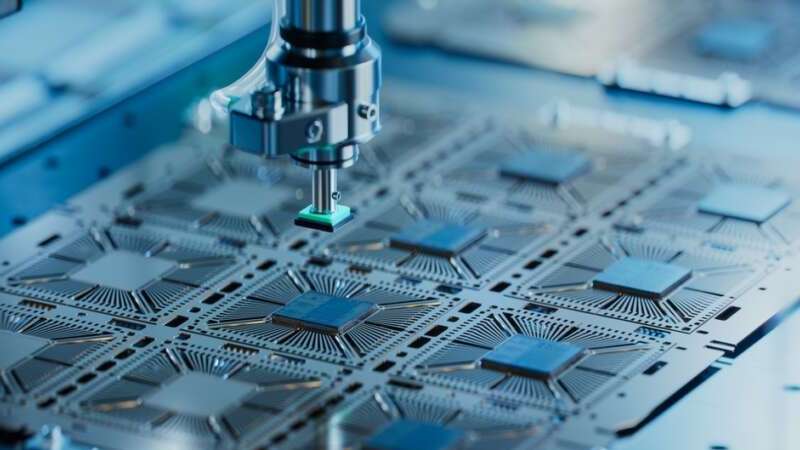
The U.S. Department of Commerce announced Dec. 13 it reached a non-binding preliminary deal with German auto supplier Bosch to provide up to $225 million in proposed direct funding under the CHIPS and Science Act.
The proposed investment would support Bosch’s planned $1.9 billion investment to transform its manufacturing facility in Roseville, Calif., for production of silicon carbide (SiC) power semiconductors, which are key for electric vehicles.
“One of the core missions of the bipartisan CHIPS and Science Act is to make targeted investments across every part of the semiconductor industry to accelerate innovation and advance U.S. technology leadership,” Secretary of Commerce Gina Raimondo, said in a statement.
President Biden signed the CHIPS and Science Act into law in August 2022, making up to $52 billion of funding available to incentivize semiconductor makers to establish new manufacturing operations in the United States.
SiC chips are critical components for applications in the automotive, telecommunications, and defense industries because they utilize less energy.
Rep. Doris Matsui, D-Calif., a co-sponsor of the 2022 CHIPS law, said in a statement that the award to Bosch would help the company to build “essential components for advances in clean mobility, electric vehicles and other clean energy technology.”
With this proposed investment, Commerce is “taking another important step in fulfilling that priority to ensure our supply chains are more secure while creating over a thousand anticipated jobs in the process,” Raimondo explained.
The proposed funding would support the expansion of Bosch’s largest SiC device factory globally. When at full capacity, according to Commerce, this proposed project is expected to produce the majority of Bosch’s total capacity of SiC semiconductors and could comprise more than 40 percent of all U.S.-based SiC device manufacturing capacity.
Bosch expects to produce its first chips on 200-millimeter wafers in its Roseville facility starting in 2026. The facility will perform both front-end device manufacturing and back-end testing, sorting and dicing processes.
The preliminary agreement remains subject to negotiation of definitive terms.
